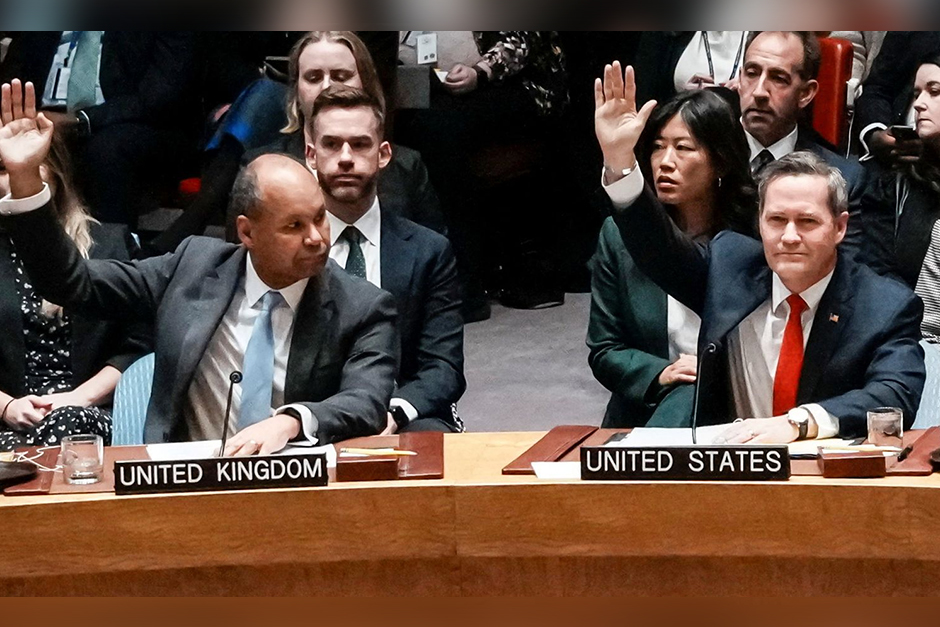The United Nations Security Council, a body often characterized by its complex deliberations and sometimes profound divisions, has delivered a truly significant and perhaps surprising development: an endorsement of a US-led plan concerning the future of Gaza. This move, originating from a principal organ tasked with maintaining international peace and security, marks a potentially pivotal moment in the enduring and often fraught challenges of the Israeli-Palestinian conflict. It’s a moment that demands a closer look, not just at the immediate implications but at what it signifies for the broader diplomatic landscape.
A Unifying Framework or a Pragmatic Alignment?
For decades, international efforts to address the myriad issues surrounding Gaza have been met with varying degrees of success, often hampered by a lack of cohesive international backing or the rejection of proposals by key parties. The Security Council’s reported support for this American initiative, therefore, represents a rare alignment among its permanent members and a broader consensus on the urgency of finding a workable solution. It begs the question: is this a testament to the merits of the plan itself, or a pragmatic acknowledgment by the international community that a fresh approach, even a controversial one, is desperately needed?
This endorsement provides a layer of international legitimacy that any unilateral plan would struggle to achieve. It transforms a proposal, which might otherwise be viewed with skepticism, into a framework supported by the world’s most powerful diplomatic body. Such backing could theoretically unlock unprecedented levels of international funding for reconstruction, humanitarian aid, and stability operations in Gaza, areas where past efforts have often fallen short due to political hurdles and a fragmented approach. However, the true test will be how this newfound unity at the UN translates into tangible buy-in from the direct parties on the ground.
From Resolution to Reality: Navigating the On-the-Ground Challenges
While the Security Council’s support is a powerful symbolic gesture, the path from a diplomatic resolution to meaningful change in Gaza is fraught with historical distrust and immense practical challenges. The plan, now bolstered by international approval, still needs to navigate the complex realities of an densely populated strip with urgent humanitarian needs, a devastated infrastructure, and deeply entrenched political rivalries. Securing the cooperation of Palestinian factions, who have previously been wary of externally imposed solutions, will be paramount. Similarly, ensuring Israel’s security concerns are met while simultaneously facilitating the reconstruction and governance of Gaza presents a delicate balancing act.
The proposed framework likely touches on critical areas such as humanitarian access, economic development, security arrangements, and governance structures. Each of these components is a minefield of potential disagreements. As one long-time humanitarian aid worker, Anya Sharma, noted, “UNSC backing offers a critical diplomatic framework, but the true test is whether it can build trust where decades of diplomacy have struggled, particularly among the people who live these daily realities. Without local ownership and broad acceptance, even the best-intentioned plans face an uphill battle.” The international community’s role will not end with the resolution; it will need to pivot towards robust monitoring, mediation, and sustained financial commitment to ensure the plan’s implementation avoids the pitfalls of previous failed initiatives.
Conclusion: A Cautious Hope for a New Era?
The UN Security Council’s endorsement of a US-led plan for Gaza undeniably marks a significant juncture. It signals a potential shift in international diplomatic strategy, moving from prolonged impasse to a concerted, albeit perhaps cautious, effort to implement a specific vision for the region. While the alignment of global powers offers a glimmer of hope for renewed international engagement and resource mobilization, the real work lies ahead. The success of this endeavor will ultimately hinge on its ability to transcend high-level diplomacy and deliver concrete, sustainable improvements for the people of Gaza, fostering a future built on genuine peace and stability rather than continued conflict.




